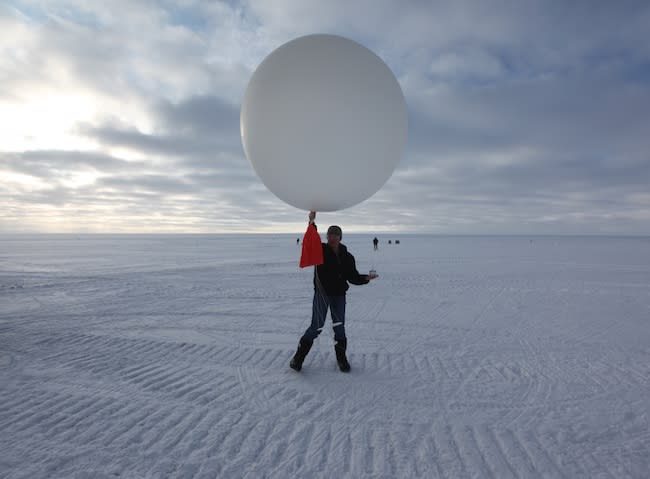 The Lookout
The LookoutStudy: Trust in science among educated conservatives plunges

Conservatives, particularly those with college educations, have become dramatically more skeptical of science over the past four decades, according to a study published in the April issue of the American Sociological Review. Fewer than 35 percent of conservatives say they have a "great deal" of trust in the scientific community now, compared to nearly half in 1974.
"The scientific community ... has been concerned about this growing distrust in the public with science. And what I found in the study is basically that's really not the problem. The growing distrust of science is entirely focused in two groups—conservatives and people who frequently attend church," says the study's author, University of North Carolina postdoctoral fellow Gordon Gauchat.
In fact, in 1974, people who identified as conservatives were among the most confident in science as an institution, with liberals trailing slightly behind, and moderates bringing up the rear. Liberals have remained fairly steady in their opinion of the scientific community over the interim, while conservative trust in science has plummeted.
Interestingly, the most educated conservatives have led that charge. Conservatives with college degrees began distrusting science earlier and more forcefully than other conservatives, upending assumptions that less educated people on the whole are more distrustful of science.
Gauchat attributes the changes to two forces: Both science and conservatives have changed a lot in 40 years. In the post-WWII period, research was largely wedded to the Defense Department and NASA—think the space race and the development of the atomic bomb. Now the scientific institution "has come out from behind those institutions and been its own cultural force." That has meant it is increasingly viewed as a catalyst of government regulation, as in the failed Democratic proposal to institute cap-and-trade as a way to reduce carbon emissions and stave off climate change.
"People are now viewing science as part of government regulation," Gauchat says.
Previous studies have shown that climate change, the widely-accepted theory that man-made carbon emissions are causing the world to grow warmer, is very unpopular among conservatives, and especially white conservative males. In 2008, half of all conservatives believed in climate change. By 2010, only a third did, compared to more than 70 percent of liberals, according to a Gallup poll.
The issue has caused a bit of a hubbub in the Republican primary. Failed candidate Jon Huntsman wrote in August, "To be clear. I believe in evolution and trust scientists on global warming. Call me crazy," before later walking that back and saying there were still doubts. Newt Gingrich has been pounded repeatedly by rival Rick Santorum—who says global warming is a "hoax"—for appearing in an anti-climate change ad with Nancy Pelosi in 2006. (He's since said there is evidence "on both sides of the issue.") And Mitt Romney says he believes the Earth is getting warmer, but isn't sure how much humans are contributing to that.
The study was based on answers to the General Social Survey, which began asking people about their level of trust in various public institutions, including Congress and the Supreme Court, in the 1970s. The dip in trust toward the scientific community didn't correlate to a decrease in trust for all political institutions, since conservatives showed increased trust in political institutions during the Bush presidency, but still found science suspicious.
Gauchat says he's done other analyses that show in Europe, the trend is flipped on its head. Liberals show a greater distrust of the scientific community. "It's which debates are salient in the public. Maybe this is a trend that will reverse if genetically modified foods becomes a big deal in the U.S." he said.
More popular Yahoo! News stories:
• Gingrich cuts staff for lean march to convention
• Obama's solicitor general ties health care law to 'Romneycare'

